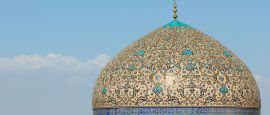Getting around Iran
Iran Air (www.iranair.com) runs services to Abdan, Ahwaz, Esfahan, Kish, Mashhad, Shiraz, Tabriz, Tehran and Zahedan and other major cities. Aseman Air (www.iaa.ir) also runs services to the major cities. The vast size of Iran often makes internal flights the most practical method of transport.
The road network is extensive, but the quality is unreliable. The two main roads, the AH1 and AH2, link the Iraqi and Pakistani borders and the Afghan and Turkish borders.
Available in all cities. The urban taxis (orange or blue) carry several passengers at a time and are much cheaper than the private taxis which only carry one person. Unofficial taxis should be avoided; use only legitimate taxis or those ordered through legitimate agencies. Group taxis for up to 10 people are available for intercity travel. Prices are negotiated beforehand and tipping is not necessary.
An International Driving Permit is recommended. Personal insurance is required. All motorists entering Iran must possess a Carnet de Passage and an International Certificate of Vehicle ownership.
RAJA Trains (tel: 1539, in Iran only; www.raja.ir) runs a comprehensive internal rail network. Major intercity trains operate on five main regional routes: Azarbaijan route (Tehran - Jolfa); Golestan route (Tehran - Gorgan); Hormozgan route (Tehran - Bandar-e-Abbas); Khorasan route (Tehran - Mashhad); and Khozetan route (Tehran - Khorramshahr). There are many areas in the mountains and the desert which can only be reached by rail. There are some air-conditioned trains, and sleeping and dining cars on many trains.
Do you have any Feedback about this page?
© 2026 Columbus Travel Media Ltd. All rights reserved. No part of this site may be reproduced without our written permission, click here for information on Columbus Content Solutions.




 You know where
You know where